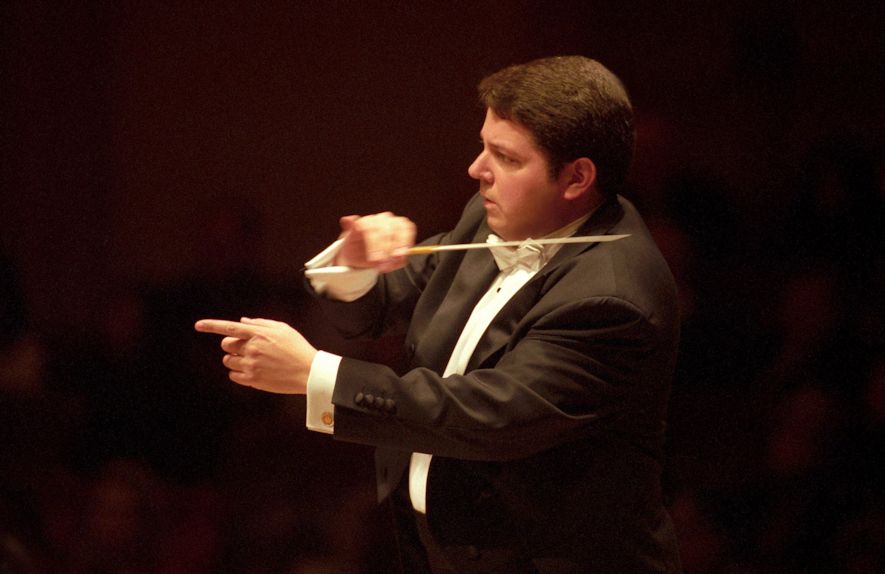

| Andrew Litton, Music Director of the New
York City Ballet, also is Artistic Director of Minnesota Orchestra’s
Sommerfest, Principal Guest Conductor of the Colorado Symphony, Conductor
Laureate of Britain’s Bournemouth Symphony and Music Director Laureate
of Norway’s Bergen Philharmonic. Recently named Principal Guest Conductor
of the Singapore Symphony Orchestra, he begins his new duties this fall.
Litton led the Dallas Symphony as Music Director from 1994 to 2006, leaving
a legacy of touring including Carnegie Hall, the BBC Proms, the Berlin
Philharmonie, and Vienna’s Musicverein. His Dallas Symphony series of
young people’s Amazing Music video recordings is in use throughout
schools in the United States and abroad. He regularly guest conducts leading
orchestras and opera companies around the globe and adds to his discography
of almost 130 recordings, which have garnered America’s Grammy Award,
France’s Diapason d’Or and other honors. Many of Litton’s concerts are
audio and video cybercast live. Born in New York City on May 16, 1959, Litton is a graduate of New York’s Fieldston School. Litton earned degrees from the Juilliard School in piano and conducting. He served as assistant conductor at La Scala and at the National Symphony under Rostropovich. Among his numerous awards are Yale’s Sanford Medal, the Elgar Society Medal, and an honorary Doctorate from the University of Bournemouth. For his work with the Bergen Philharmonic, Norway’s King Harald V knighted Litton with the Norwegian Royal Order of Merit. Litton, an acknowledged expert on George Gershwin, has performed and recorded Gershwin widely as both pianist and conductor and serves as Advisor to the University of Michigan Gershwin Archives. After leading the Covent Garden debut of Porgy and Bess, he arranged his own concert suite of that work, which is now performed around the world. In 2014 he released his first solo piano album, A Tribute to Oscar Peterson, testimony to his passion for jazz, particularly the music of that great pianist. == Throughout this page, names which are links
refer to my interviews elsewhere on my website. BD
|
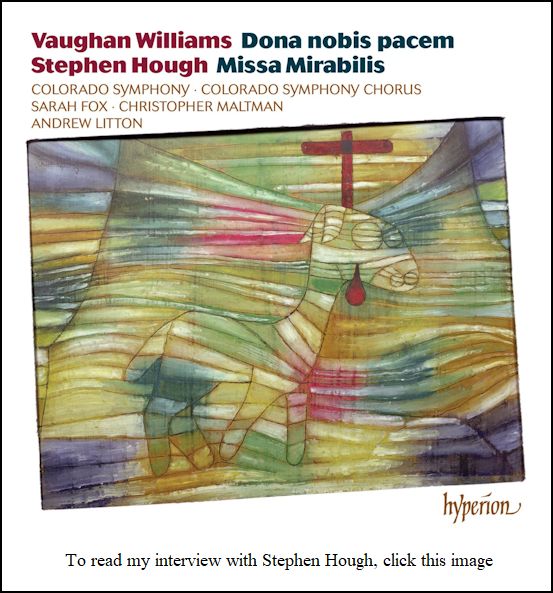 In August of 1993, Andrew Litton was making his
debut with the Grant Park Festival, the series of free outdoor concerts
on Chicago’s lakefront, which was celebrating its 59th season.
The orchestra, which becomes the pit-band (!) for Lyric Opera of
Chicago during the fall and winter, played an all-Tchaikovsky program honoring
the centenary of his death. On the day before his first performance,
Litton graciously agreed to meet with me, and here is what transpired that
afternoon . . . . . . . . .
In August of 1993, Andrew Litton was making his
debut with the Grant Park Festival, the series of free outdoor concerts
on Chicago’s lakefront, which was celebrating its 59th season.
The orchestra, which becomes the pit-band (!) for Lyric Opera of
Chicago during the fall and winter, played an all-Tchaikovsky program honoring
the centenary of his death. On the day before his first performance,
Litton graciously agreed to meet with me, and here is what transpired that
afternoon . . . . . . . . .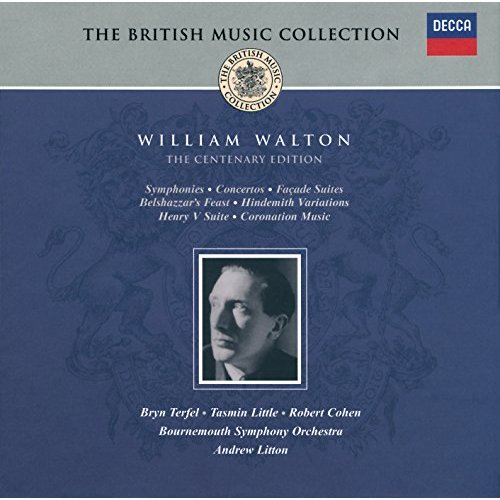 AL: Yes, and they have a life of their
own, and sure enough it went really well. A lot of people say
that they can’t believe it’s a British orchestra when they hear them play
this American music, and that, to me, is the highest compliment.
There’s no trace of ‘foreign accent’, and that’s really what I go for
in all my music making. But to have had it happen with something
as distinctly idiosyncratic as American music in England has been very
satisfying.
AL: Yes, and they have a life of their
own, and sure enough it went really well. A lot of people say
that they can’t believe it’s a British orchestra when they hear them play
this American music, and that, to me, is the highest compliment.
There’s no trace of ‘foreign accent’, and that’s really what I go for
in all my music making. But to have had it happen with something
as distinctly idiosyncratic as American music in England has been very
satisfying.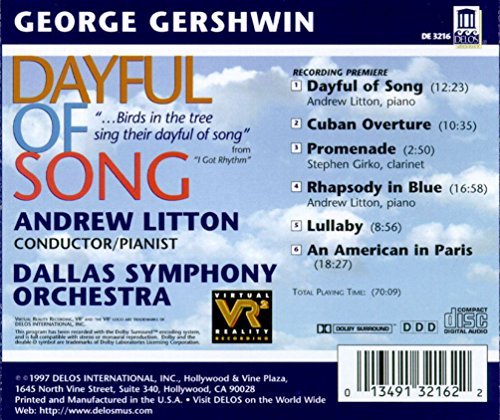 AL: We’ve already started a whole bunch
of approaches to this problem. I already brought up education,
and one other thing that we’re really exploring is going full frontal on
all age groups in the Dallas Metropolitan area. We’re going out to
the kids, we’re going out to the college students, and we’re going out
to the grown-ups. It’s almost an assault! The way we’re going
to do this is through the media. We’re exploring all sorts of ways
to do videos. You asked about the MTV generation, and this is the
answer. You’ve got to use these media that have been exploited so
wonderfully in the popular culture. Let’s do this with the other stuff!
When you see the success of films like Amadeus, musical purists could
cringe, but at the same time you’ve got to use that and learn from it.
Why is somebody like Nigel Kennedy so popular? I remember him when
he was normal. [Both laugh] I respect enormously what he’s
done, and a lot of people know about Vivaldi and Beethoven and Brahms that
otherwise wouldn’t. So let’s use this. I’m not saying let’s
sell out, but there are ways — if it’s done with
taste, and it’s done carefully, and if it’s done with a modicum of intelligence
— that it can ultimately serve everybody the best.
For me, that means bringing great music to as many people as possible,
and making them realize it isn’t an elitist art form, but the most pure
and wonderful expression of beauty that there is. Then they’ll realize
what this is all about, and that’s what we’re going for in Dallas.
Again, I’m talking in very broad terms because I haven’t started yet, but
this is what we’re after. It’s a fantastic situation, and I’ve just
come on board. We’ve got a brand new chief executive, his title is
President of the Association, and both of us have this totally zealous approach
trying to capitalize on this education idea. In fact, he comes from
education. That’s his background, so between the two of us, hopefully
we will make this happen.
AL: We’ve already started a whole bunch
of approaches to this problem. I already brought up education,
and one other thing that we’re really exploring is going full frontal on
all age groups in the Dallas Metropolitan area. We’re going out to
the kids, we’re going out to the college students, and we’re going out
to the grown-ups. It’s almost an assault! The way we’re going
to do this is through the media. We’re exploring all sorts of ways
to do videos. You asked about the MTV generation, and this is the
answer. You’ve got to use these media that have been exploited so
wonderfully in the popular culture. Let’s do this with the other stuff!
When you see the success of films like Amadeus, musical purists could
cringe, but at the same time you’ve got to use that and learn from it.
Why is somebody like Nigel Kennedy so popular? I remember him when
he was normal. [Both laugh] I respect enormously what he’s
done, and a lot of people know about Vivaldi and Beethoven and Brahms that
otherwise wouldn’t. So let’s use this. I’m not saying let’s
sell out, but there are ways — if it’s done with
taste, and it’s done carefully, and if it’s done with a modicum of intelligence
— that it can ultimately serve everybody the best.
For me, that means bringing great music to as many people as possible,
and making them realize it isn’t an elitist art form, but the most pure
and wonderful expression of beauty that there is. Then they’ll realize
what this is all about, and that’s what we’re going for in Dallas.
Again, I’m talking in very broad terms because I haven’t started yet, but
this is what we’re after. It’s a fantastic situation, and I’ve just
come on board. We’ve got a brand new chief executive, his title is
President of the Association, and both of us have this totally zealous approach
trying to capitalize on this education idea. In fact, he comes from
education. That’s his background, so between the two of us, hopefully
we will make this happen.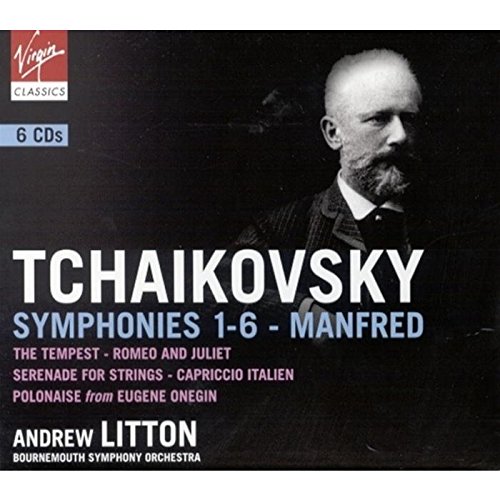 BD: When you’re doing the regular week
to week rehearsing and performing, do you do all of the work in the
rehearsals so that it’s perfect, or do you leave something for that
spark of the night?
BD: When you’re doing the regular week
to week rehearsing and performing, do you do all of the work in the
rehearsals so that it’s perfect, or do you leave something for that
spark of the night?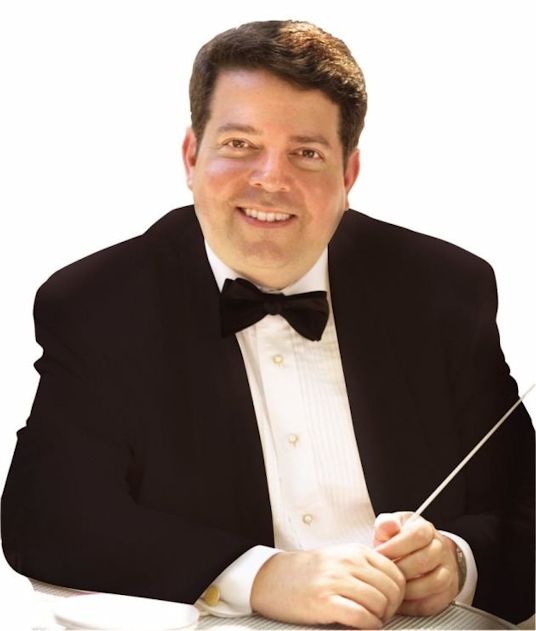 AL: Recordings are very different situations, and people
who say that they aren’t are crazy. I’m about to make my first
live record in two weeks’ time. At my first appearance with the
Dallas Symphony since I was named music director, we are recording the
Mahler Five that we’re performing live. The record company’s
calling it Five Live! But recordings made when they aren’t
live are documents. They are actually not what classical music
should be, because classical music is ephemeral. It should just
be the experience of the moment. But here you’re given this incredible
opportunity to play it again and again and again. So, by the very
nature of that, it should be a little bit more together, a little bit
more perfect than perhaps a performance would be.
AL: Recordings are very different situations, and people
who say that they aren’t are crazy. I’m about to make my first
live record in two weeks’ time. At my first appearance with the
Dallas Symphony since I was named music director, we are recording the
Mahler Five that we’re performing live. The record company’s
calling it Five Live! But recordings made when they aren’t
live are documents. They are actually not what classical music
should be, because classical music is ephemeral. It should just
be the experience of the moment. But here you’re given this incredible
opportunity to play it again and again and again. So, by the very
nature of that, it should be a little bit more together, a little bit
more perfect than perhaps a performance would be.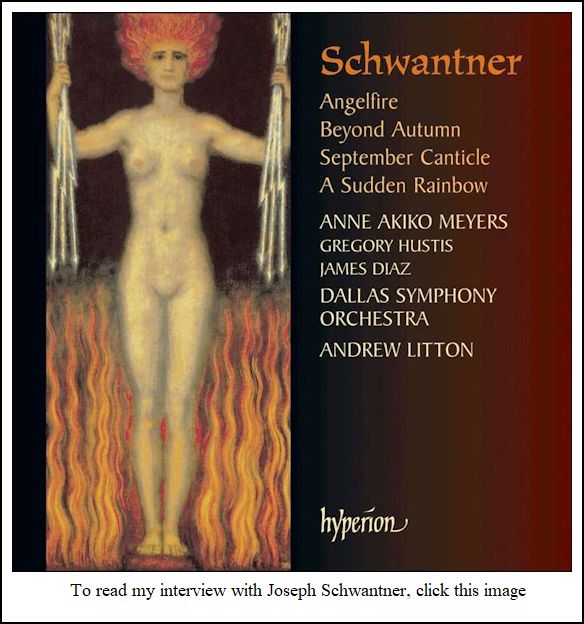 AL: [Laughs] You believe in these tough questions!
[Thinks a moment] We’re very much at a transitional stage.
Now we are in a position where we must educate people to appreciate music.
Even our parents could receive a fundamental education from the
school systems, in which kids today no longer even have a glimmer of hope
in receiving. We have to somehow keep music alive by interesting
people and maybe getting a Pied Piper out there to convince people that
this art form deserves to live, and it’s happening. There are plenty
of young people in subscription audiences of major orchestras around the
country, but it’s hard work, and you can never let down. It’s got
to keep going. New music is another challenge because there’s so
much of it written and there’s so little of it that’s good, but that has
always been the case.
AL: [Laughs] You believe in these tough questions!
[Thinks a moment] We’re very much at a transitional stage.
Now we are in a position where we must educate people to appreciate music.
Even our parents could receive a fundamental education from the
school systems, in which kids today no longer even have a glimmer of hope
in receiving. We have to somehow keep music alive by interesting
people and maybe getting a Pied Piper out there to convince people that
this art form deserves to live, and it’s happening. There are plenty
of young people in subscription audiences of major orchestras around the
country, but it’s hard work, and you can never let down. It’s got
to keep going. New music is another challenge because there’s so
much of it written and there’s so little of it that’s good, but that has
always been the case.
© 1993 Bruce Duffie
This conversation was recorded in Chicago on August 20, 1993. Portions were broadcast on WNIB the following year, and again in 1999; on WNUR in 2005, and on Contemporary Classical Internet Radio in 2006, and 2011. This transcription was made in 2018, and posted on this website at that time. My thanks to British soprano Una Barry for her help in preparing this website presentation.
To see a full list (with links) of interviews which have been transcribed and posted on this website, click here. To read my thoughts on editing these interviews for print, as well as a few other interesting observations, click here.
Award - winning broadcaster Bruce Duffie was with WNIB, Classical 97 in Chicago from 1975 until its final moment as a classical station in February of 2001. His interviews have also appeared in various magazines and journals since 1980, and he now continues his broadcast series on WNUR-FM, as well as on Contemporary Classical Internet Radio.
You are invited to visit his website for more information about his work, including selected transcripts of other interviews, plus a full list of his guests. He would also like to call your attention to the photos and information about his grandfather, who was a pioneer in the automotive field more than a century ago. You may also send him E-Mail with comments, questions and suggestions.